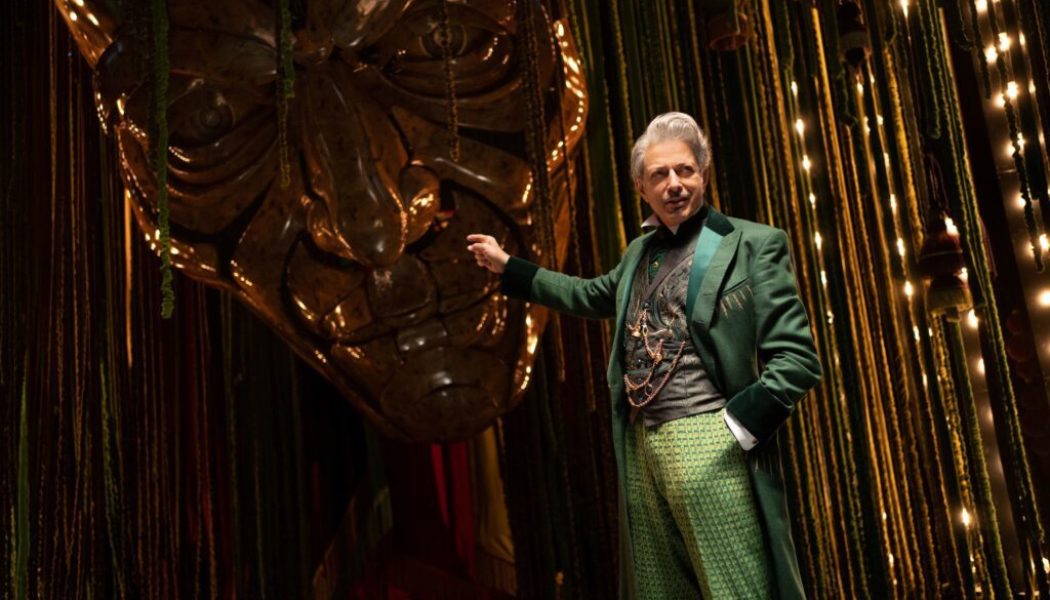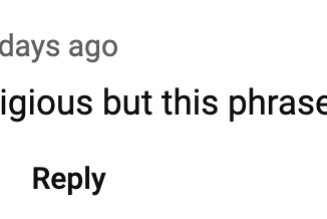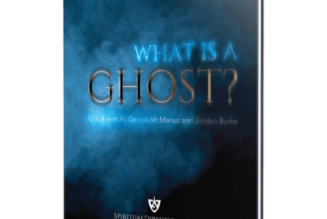Wicked will now take a one-year intermission. Enjoy the snacks at the concession stand.
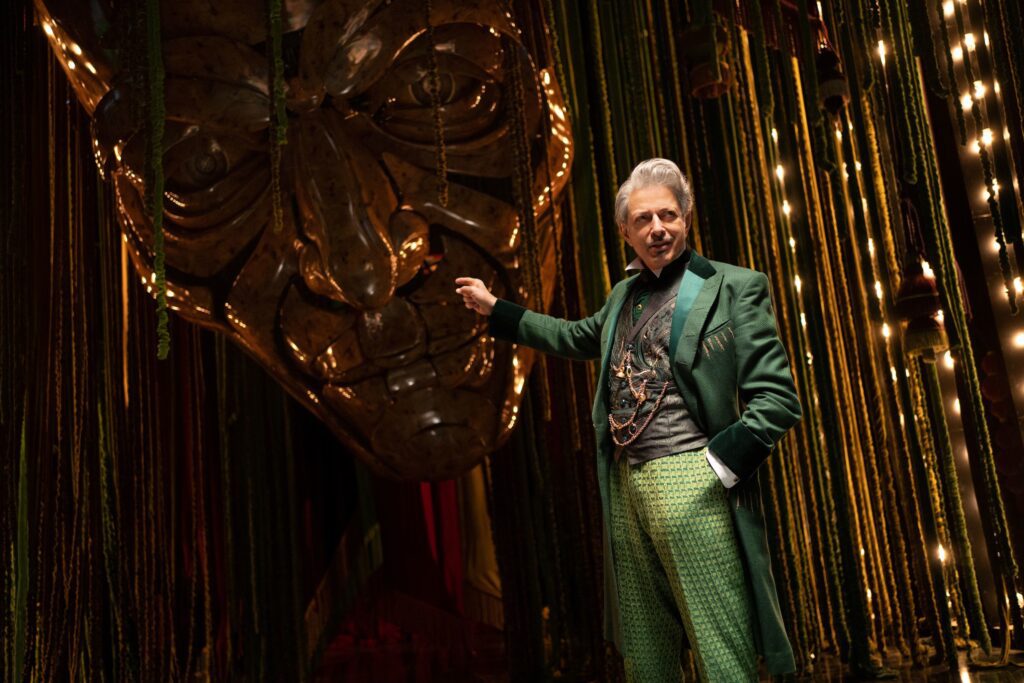

By far the most important thing to know about the film release of Wicked is this: it’s only Act One of the musical. This caught me by surprise, because the film is called Wicked (rather than, say, Wicked, Act One or Something Bad Is Happening in Oz or even How the Flying Monkeys Got Their Wings). And I had noticed that the run time was 2:40, which seemed about right for a Broadway musical adaptation. When the movie ended in the middle of the story, I exited feeling a little foolish for not having known. But I’ve looked again at the promotions I saw for the movie, and I’m still not sure how I could have known that this was only half of the story without a subscription to Variety. Wicked indeed.
The good news is that it’s a very strong film adaptation of the 2003 musical Wicked, which I have long considered one of the two or three best musicals of my lifetime. For those who aren’t familiar with it, Wicked presents a history of Oz before Dorothy’s arrival. Everyone who has seen The Wizard of Oz (1939) already knows the Wicked Witch of the West and Glinda the Good Witch; the musical makes them the two main characters. And it turns out that they were in college together. Wicked explores that history, looking backward from the moment when everyone in Oz is celebrating the Wicked Witch’s death. It’s a flashback from Glinda’s memory, prompted by the question, “Are people born wicked? Or do they have wickedness thrust upon them?” Just as the 1939 movie was based upon the Oz novels of L. Frank Baum, the 2003 musical Wicked was based upon (and improved immeasurably upon) the 1995 novel of the same name by Gregory Maguire.
Idina Menzel and Kristin Chenoweth originally played the two witches on Broadway, and there are not enough superlatives to do their acting, their voices, and their chemistry justice. But the real star of the show is actually the score by Stephen Schwartz. If you haven’t heard it, do yourself a favor and listen to the Broadway soundtrack from beginning to end. In song after song, Menzel and Chenoweth sing with and at each other with voices powerful enough to drive nails. When they harmonize or sing contrasting melodies against each other, it is often difficult to tell them apart, which is surely part of the point of the work as a whole.
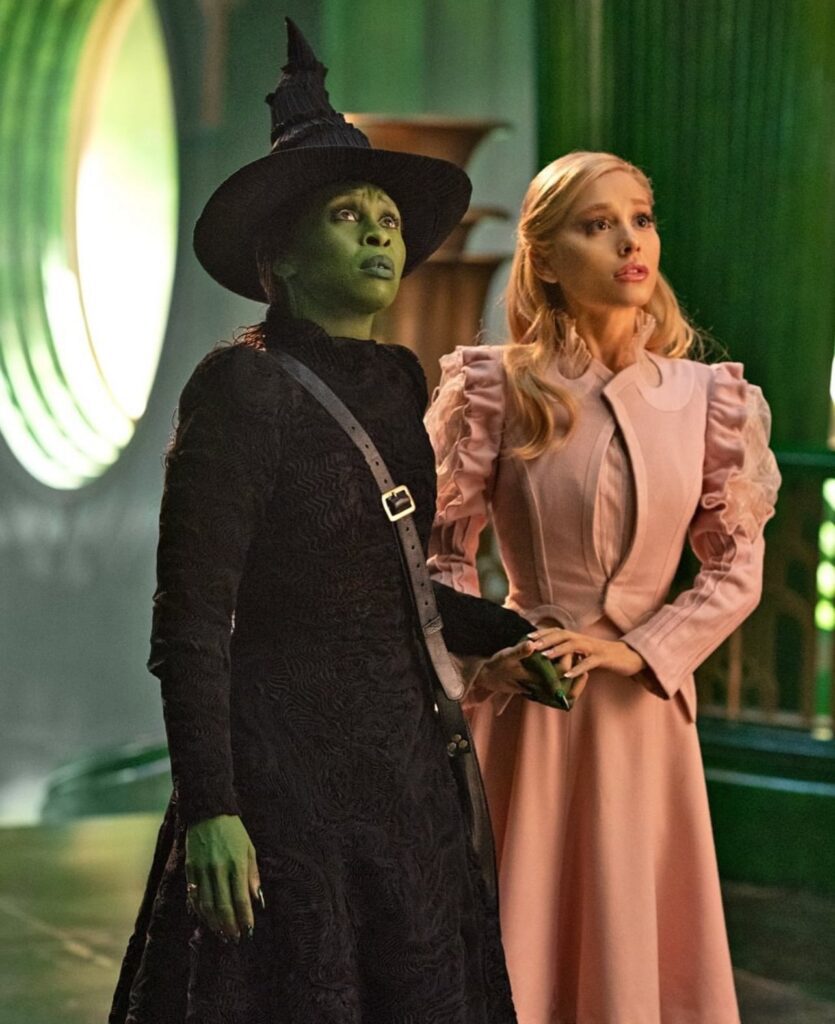

The lyrics, too, are very smart. What one notices right away are the rhyme schemes, like this one sung by the vacuous young Glinda in “Popular”:
Don’t be offended by my frank analysis;
Think of it as personality dialysis
Now that I’ve chosen to become a pal, a sis-
ter and adviser,
There’s nobody wiser,
Not when it comes to
Popular . . .
Who thinks “analysis” is a promising way to start a rhyming stanza? And who follows up “analysis” and “dialysis” with two-and-a-half absolutely ordinary words? Schwartz is a genius this way.
Nor does Schwartz stint on philosophical depth. Some may think they detect the odor of relativism in this meditation on the nature of wickedness, and the lyrics do repeatedly play on common English phrases that include the word “good,” such as “for good,” “make good,” “thank goodness,” and “goodness knows.” Some characters embrace that relativism, at least for a time; others embrace ignorance or apathy, at least for a time. But in the end—well, we can talk about the end after Act Two has been released.
If I had to sum up the quality of the film adaptation in a single word, the word might be faithful. In place of Menzel and Chenoweth, we get Cynthia Erivo as Elphaba (destined to be the Wicked Witch) and Ariana Grande as Elphaba’s college frenemy Glinda. Erivo’s Elphaba struck me as somewhat sadder and somewhat less angry than Menzel’s version on Broadway—a little softer and a little more vulnerable. It worked for me. Grande took time to grow on me; at first it seemed like she was standing where Kristin Chenoweth should have been. But she nailed the signature number “Popular,” and eventually brought some dramatic depth that won me over. In particular, the social ostracism of the college scenes is depicted in this film with such exquisite, merciless awkwardness that even the scheming, self-aggrandizing, two-faced Glinda is … converted, a word I use advisedly. Jonathan Bailey is perfect as the empty-headed party boy, Prince Fiyero, a role that probably requires as much dramatic range as any other in the show. Jeff Goldblum is surprisingly good as the Wizard, and I also appreciated, possibly for autobiographical reasons, Peter Dinklage’s performance as a disillusioned old goat teaching history.
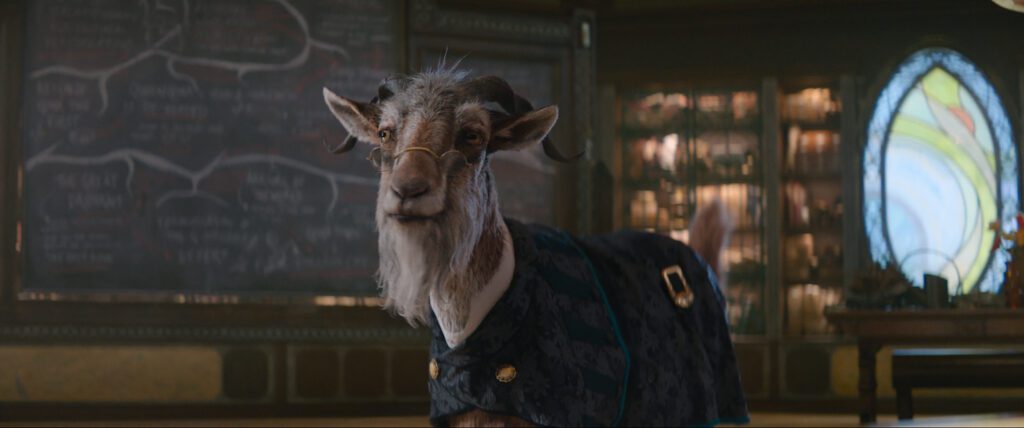

The fact that, after more than two hours, I was surprised to see the words “To Be Continued” on the screen and realize this was only Act One—the fact that I had not been checking my watch and wondering how they were ever going to wrap this up in time—tends to vindicate the producers’ decisions both to expand the work and then to bifurcate it. The expansion consisted of a little more background here, a little more dancing there, and even a few completely new scenes. But with all that added in, the movie still captivates throughout. (The fight scene alone in 2013’s Superman flick, Man of Steel, felt twice as long as this whole (half?) movie.)
So to those who have seen the musical already: go and see this movie. You’ll love it, and when it’s over your only regret will be that you have to wait a year for Act Two. It’s true that you’ll probably want to rent this film again next November before you see the second half, so you could save yourself $15 or $20 now. But I think this film both deserves and justifies the big screen. And unless your home speakers are a lot better than mine, this is music so good it’s worth a trip to the theater to hear it there.
What if you haven’t seen the musical? In that case, I might advise you to wait. On the escalator out of the theater, I was behind a mother and her (six-year-old?) daughter who both seemed confused; they thought nothing had really happened in the movie. I’m sympathetic to that reaction, not because it’s true that nothing happened but because Act One ends with all the plotlines unresolved. That’s what Act One is supposed to do. The problem is not that this is a bad Act One; the problem is that Act One is not supposed to be the point at which everyone goes home. Act One raises questions, and this Act One is no exception.
What questions does Wicked’s Act One raise? It raises questions about good and evil; about the fallibility both of public authority and of popular opinion; about the gap between our intentions and our actions; and about the frequent opacity of other people’s motives. (So no, I wouldn’t expect a six-year-old to get much out of it.)
I trust that Act Two will be as faithful to the musical as Act One, and that we’ll be able to return to those themes in a year. Act Two is scheduled for release on November 21, 2025. For now, though, it’s intermission.
